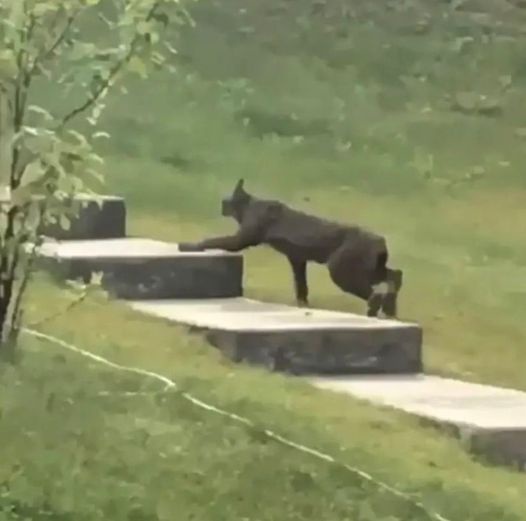
We are republishing this story which originally made the news in December 2022.
Canadian scientists have made an extraordinary discovery by capturing, for the very first time, a melanistic Canada Lynx on cell phone footage.
In the Lynx genus, coat colors are usually predictable, with the Canada Lynx typically showing shades of gray or reddish-brown. However, this unique find has shaken the scientific community, as a melanistic lynx—recognized for its dark coloration—had never been recorded before. Researchers are fascinated by this new specimen but also express concern about its natural disadvantage in the often snowy habitats it occupies. Unlike its lighter-colored counterparts, the melanistic lynx may struggle to camouflage and maintain successful hunting strategies.
Furthermore, this discovery has sparked discussions about the possible connection between animal melanism and climate warming. A 2014 study proposed a link between these two phenomena, suggesting that rising temperatures could influence the emergence of darker coat colors in various animal species.
As scientists continue to study this unique lynx, the footage has become a symbol of the diversity and adaptability found in nature. It has inspired both awe and concern, highlighting the importance of preserving and understanding the delicate balance between wildlife and a changing environment.
This rare encounter with a melanistic Canada Lynx marks a significant milestone in wildlife research and conservation efforts. Researchers hope their findings will lead to a better understanding of how climate and other factors influence color variations observed in different animal species.
In conclusion, this remarkable footage of the melanistic lynx stands as a testament to the wonders of the natural world and the ongoing quest to unravel its mysteries. As we delve deeper into these fascinating discoveries, we are reminded of the vital role we play in protecting the extraordinary richness of wildlife for generations to come.



